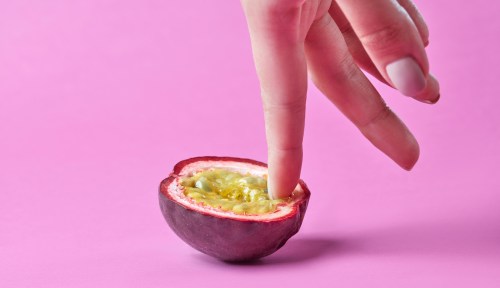Sexual Aftercare Isn’t Just a BDSM Thing—Here’s Why Everyone Should Try It
Sexologists share why it's so necessary for both your relationship and your overall well-being to practice aftercare after sex play of any kind.

If you’ve ever experienced postcoital dysphoria (or felt the post-sex blues)—an hour, day, or even three days after an encounter—it might be because you’re not practicing appropriate aftercare. For the uninitiated, aftercare is a concept that originated in the BDSM community, and it generally refers to the things you do to make sure everyone is okay and taken care of after sex play. (BDSM, which can include bondage, sadism, and/or submission, sometimes involves paddles. When it does, participants might need a little TLC afterward.) But there’s a scientific reason to consider aftercare for all types of sexual encounters: It helps to prevent you from completely crashing after a feel-good chemical rush.
Experts in This Article
sex coach and clinical sexologist for Royal
certified sex therapist and sexologist
licensed clinical social worker and sexologist
“During sex, chemicals like oxytocin, dopamine, and prolactin are released,” says sexologist Shamyra Howard, LCSW. Aftercare may help to regulate how your body responds as those chemicals dissipate. In this way, aftercare after sex can be helpful for maintaining a feeling of closeness in a relationship—because intimacy, vulnerability, and connection shouldn’t end with orgasm, says sexologist Chris Donaghue, PhD, an intimacy expert for the sexual wellness company Skyn.
“A healthy sexual model is pleasure-based and acknowledges that post-sex aftercare is a way to continue that pleasure and intimacy.” —sexologist Chris Donaghue, PhD
Essentially, how partners respond after sex can affect whether or not people feel safe and comfortable or rejected. “Our culture uses a performance model for sex: It’s treated as though there is a goal, one right way to achieve it, and anything else is a failure,” say Dr. Donaghue. “A healthy sexual model is pleasure-based and acknowledges that post-sex aftercare is a way to continue that pleasure and intimacy. Anything less is a severe and spontaneous disconnection from the sexual connection just achieved.”
How to practice aftercare after sex of any kind:
Before practicing any kind of aftercare, remember that consent is a paramount prerequisite. To attain consent, ask how your partner likes to be approached after sex. “Some people like a lot of closeness and snuggles, other people require lots of space and grounding, and some like both in no particular order,” says sexologist Caitlin V. Neal, MPH.
Other ideas for practicing aftercare after sex? Cuddling is a big one, as is pillow talk, getting a cup of tea, or ordering pizza—basically whatever makes you smile. “One of the best aftercare strategies I have heard of involved having warm towels next to the bed for a full-body wipe down and cookies baking in the oven that are delivered to your lover in bed,” says Neal. “For you, aftercare could mean a steamy scrub down in the shower, meditation, heaping praise upon each other, or reviewing the video footage. There’s no wrong way to practice aftercare, and there’s no upper limit to how much pleasure it can create.”
And the practice isn’t just for madly-in-love, long-term couples who live together. Everybody from casual partners just hooking up and those practicing solo sex to people in long-distance relationships can practice aftercare after sex. “Those who are unpartnered or who are in long-distance relationships can create space for aftercare by using weighted blankets after sexual intimacy or cuddling with clothing or other objects that belong to your partner,” Howard says.
What’s key to remember, though, is that what you do after sex can really change your relationship—and/or your relationship with pleasure—for the better. “After care doesn’t need to be a mystery, or even a challenge,” Neal says. “With a little planning in advance, it can be as meaningful and pleasurable as intercourse itself.”
Oh, hi! You look like someone who loves free workouts, discounts for cult-fave wellness brands, and exclusive Well+Good content. Sign up for Well+, our online community of wellness insiders, and unlock your rewards instantly.










